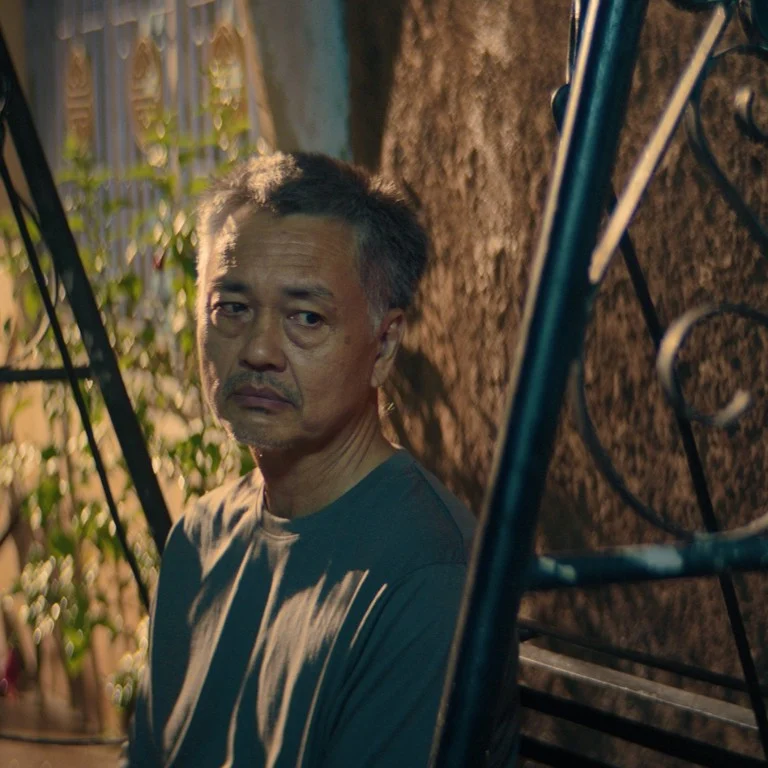‘Rain Town’, directed by Tunku Mona Riza, a talented Malay female director, offers a deep dive into the life of a traditional Chinese household.
Despite exploring a culture different from her own, she successfully demonstrated a deep understanding and authentic touch in her work.

The film does more than just portray a Chinese lifestyle and community; it resonates deeply, capturing the quintessential struggles and core dynamics of a Chinese family with remarkable authenticity.
Tunku Mona Riza’s take on Traditional Chinese Family
At the heart of ‘Rain Town’ is the story of a Chinese family consisting of four members, who navigate the complexities of life under the roof of Choo Kam Wah, a steadfast father played by Kin Wah Chew, and Aileen Choo, the nurturing mother portrayed by Susan Lankester.
The narrative focuses on the father’s attempts to guide his children through life, insisting on making crucial decisions for them based on the oft-quoted notion of it being “for their own good.”

The film brings to light the modern-day challenges faced by teenagers and young adults living under the shadow of a traditional patriarch who seeks to control their life’s major decisions.
Central to the story is Isaac Choo, the eldest son, brought to life by Fabian Loo. Isaac grapples with the heavy burden of his father’s expectations to excel as a doctor in Taiping, a path he has no desire to follow, yearning instead to chase his dreams in music.
Bringing the characters to life
Fabian Loo delivers a compelling performance, portraying a character torn between fulfilling his family’s expectations and following his own passions.
Isaac’s struggle is depicted with nuance, especially in moments where he manages a smile upon receiving his father’s praise, yet his eyes betray a sense of helplessness and disillusionment.

He is caught in a dilemma, wanting to make his father proud and meet his expectations, but feeling deeply unhappy about not pursuing his true desires.
A pivotal scene unfolds as Isaac and his brother Alex Choo, portrayed by Wilson Lee, engage in a heated argument. Isaac vents his frustrations about the expectations placed upon him, the pressure of being the designated successor to his father’s dream of having a doctor in the family, and his envy of Alex’s relative freedom.
Despite their conflicts, it’s evident that the brothers share a profound connection and genuinely care for each other.

“Rain Town” excels in capturing the complex emotions of carrying parental expectations, the sacrifices made, and the bittersweet reality of familial obligations.
Both young and veteran actors deliver outstanding performances, with Kin Wah Chew portraying a traditionally-minded father who, despite his love, struggles to truly understand his children. His approach to love, though well-intentioned, ends up alienating those around him.

Aileen Choo, on the other hand, embodies a traditional yet assertive matriarch, balancing conventional maternal warmth with modern assertiveness—a portrayal that resonates with many, thanks to its authenticity and depth.
Flawed but still brilliant
While the film brilliantly brings to life the dynamics of a traditional family, it’s not without its flaws. The narrative, juggling multiple characters and themes, sometimes lacks a central storyline to anchor the plot. This causes the beginning to feel somewhat slow, and the climax, though emotionally charged, to appear overloaded.
Despite these minor setbacks, “Rain Town” is a masterful depiction of family, emotions, and cultural values. The acting, cinematography, and messaging were all executed with excellence.
Tunku Mona Riza’s film not only enriches the Malaysian cinema landscape but also sets a high benchmark for future storytelling. Here’s hoping “Rain Town” paves the way for more films of its caliber in Malaysia’s cinematic future.
READ ALSO:



